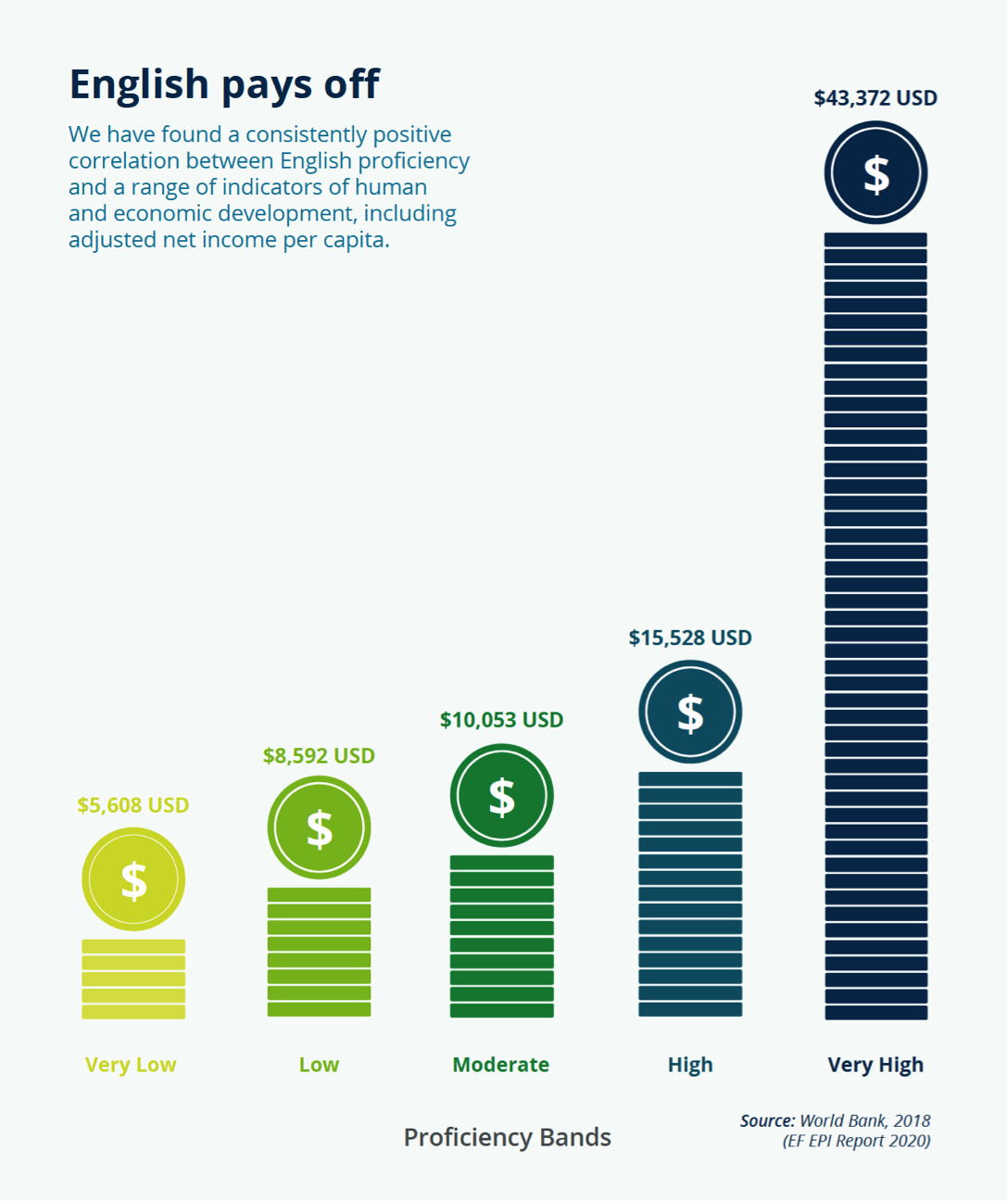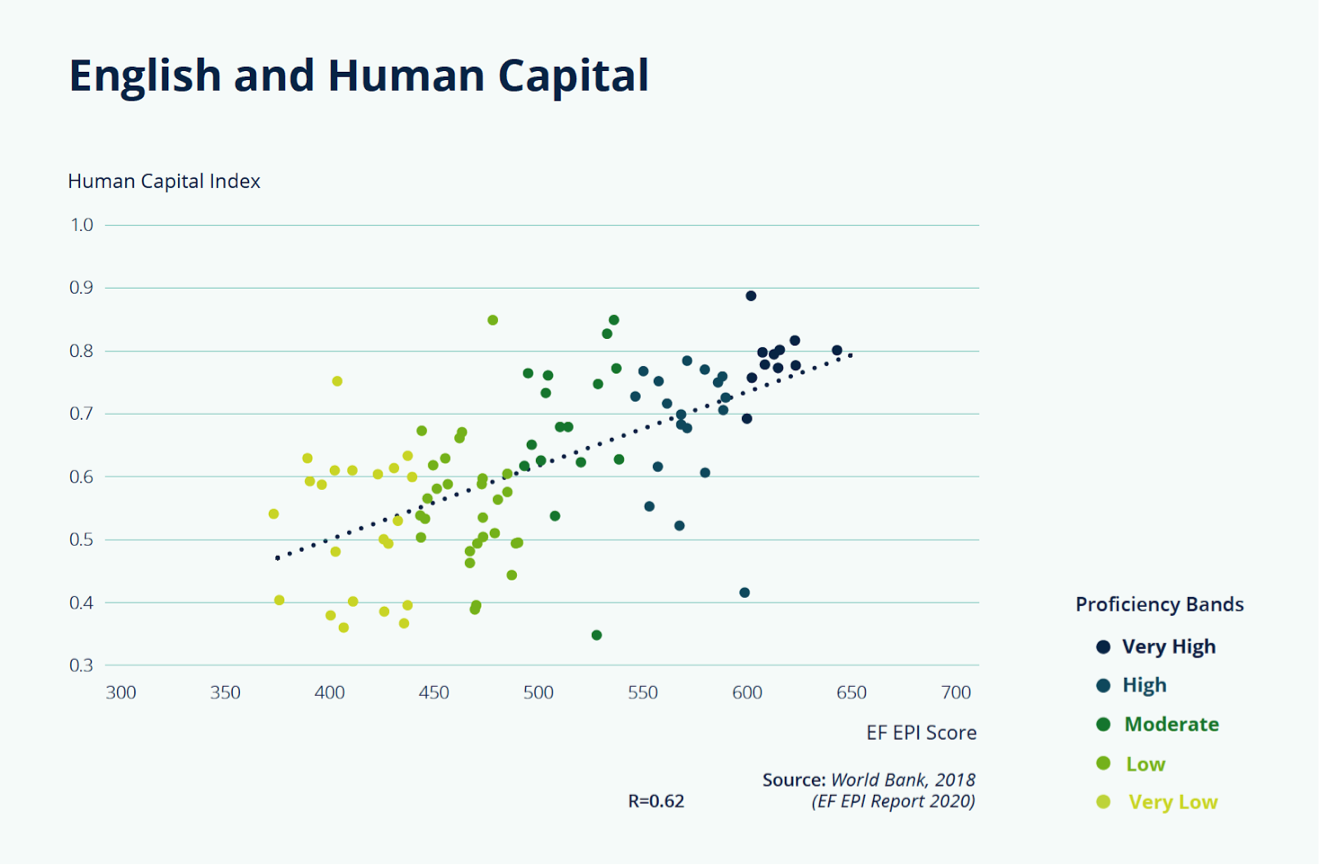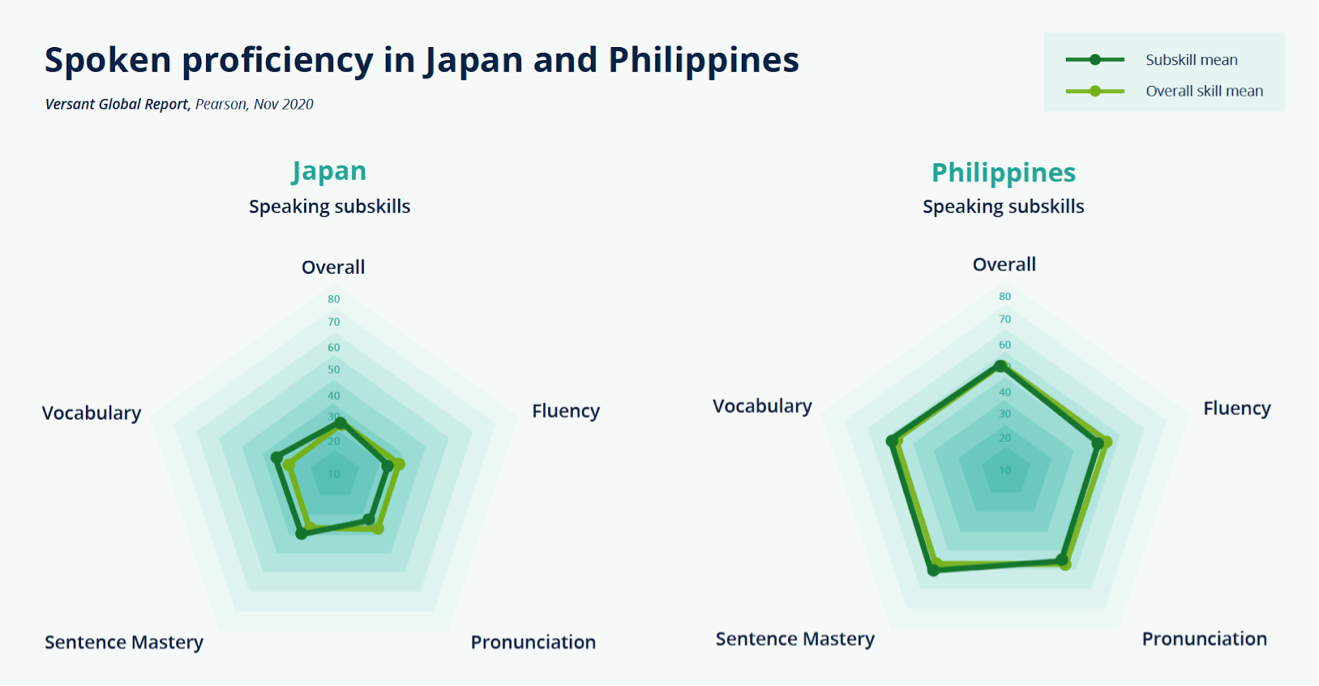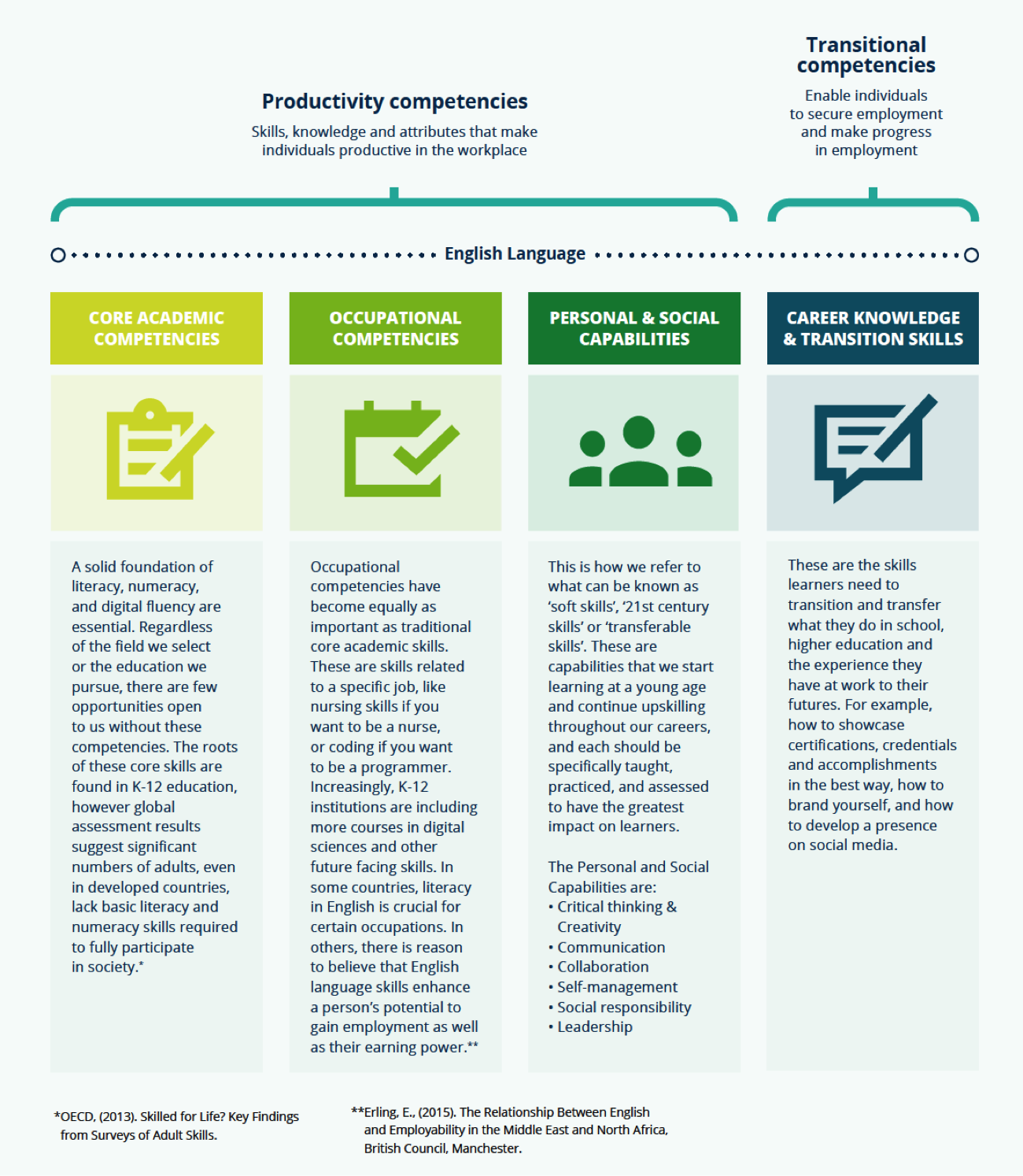Importance of English for global business– spotlight on Japan

English is the official language of global business.
English has been the global lingua franca of business since the early 2010s when it was adopted by corporations like Airbus, Daimler-Chrysler, Nissan, Nokia, Rakuten, Renault, Samsung, SAP, Sodexo, Technicolor, and Microsoft to simplify global operations and generate new opportunities. Today, even small businesses work across continents and most of the communication is in English. Any organization or individual that wishes to succeed in today’s marketplace will need strong English skills to thrive.
The current status of English language readiness however is murky. Language proficiency is a complex skill to measure and very few companies, regardless of size, have consistent (or sufficient) English communication capabilities across their organization. This has left corporations vulnerable to inefficient operations and risk.
It is important to note, however, that strong communications skills require more than English proficiency; employees need interpersonal skills, listening comprehension, and the ability to adapt to a changing environment. Today’s employees will require a more flexible and dynamic system of English training, as well as a continuous path of unlearning, upskilling, and reskilling.
The job falls to learning and development teams to establish an English language program that can:
- Develop and test specific capabilities, especially interpersonal skills, and complex thinking.
- Implement more work-based training to grow competency.
- Respond to the needs of the labor markets to ensure continuous alignment.
- Provide flexible pathways so that learning can rapidly convert to earning.
- Support significant changes that allow education and industry to function better, side by side.
English and the economy

During the past 30 years, emerging economies have relied on manufacturing to close the economic gap with developed countries. As these opportunities dry up, they will need to focus more on education if they are to tap into international trading opportunities and develop in the service sector. As the complexity and sophistication of economic exchange increases, so does the demand for better English proficiency.
Speaking the same language as a trading partner is not just a practical necessity, it is also vital to build trust. According to the EF EPI 2020 report, countries that can speak the same language trade 42% more than those who do not.
Research also clearly reveals the direct correlation between English proficiency and human capital, as well as English proficiency and productivity. English language skills are critical for workers’ human capital transferability in the corporate environment.

Spotlight on Japan: The implications of an aging economy
In Japan today, 28% of the population is over 65. The government is encouraging workers to retire later, and younger workers to upskill early. In Japan, where English proficiency rates remain stubbornly low, English training must be a top priority and a vital resource for Japan to remain competitive in this global economy.
Compared to other Asian industrial powerhouses, such as China and the Philippines, English proficiency in Japan is commonly said to be amongst the weakest in the region.

The Japanese government acknowledges that English skills are vital for their economic viability in a global economy. Although proud of their history and culture, the shrinking population and future influx of foreign workers will require Japan to accelerate the adoption of English.
According to a 2019 survey about English Utilization by the Institution for International Business Communication, currently, 82.6% of businesses believe English is the most important requirement, while 67% believe that these skills are lacking. The report goes onto to say that within the next three years companies project that the level of English required for hiring and transition will double from 18% to 36.7%.
Traditional testing models will not be enough for Japan
A good TOEIC L&R score is no longer considered an accurate assessment for workforce-ready English proficiency. For example, officials from one company said:
“We hired someone with a 990 perfect TOEIC score so we took him to an interview which we had with foreign buyers, but he couldn’t speak English at all. We were very disappointed with him.”
Businesses cannot risk placing a person whose English skills are lacking into a position where they must navigate complex business operations. The potential for misunderstandings, inefficiencies, and poor decision-making are far too great, and the consequences of mistakes are too high.
The ability to simply read, write, and speak English is no longer sufficient for business. Employees must be able to demonstrate core academic competencies, but they must also be proficient with the English used in their industry and job role. Their social skills must be strong enough to work successfully with people from many other cultures and they must be able to demonstrate advanced communication skills to earn certifications and other professional accomplishments.

The way forward for Japan
Clearly, Japanese companies must find efficient and effective methods to quickly accelerate their English competency. Pearson has created a set of technology-based tests to measure the productivity competencies identified above. The Pearson English Versant tests were designed for businesses to quickly and accurately assess English communication skills from anywhere and at any time. Today, many large Japanese corporations use Versant for their hiring and L&D needs including SMBC, Mizuho, Tokio Marine, TDK, Nikkei and Rakuten.
For more information about testing English communication skills and to learn more about Pearson English Versant tests, contact us now.















